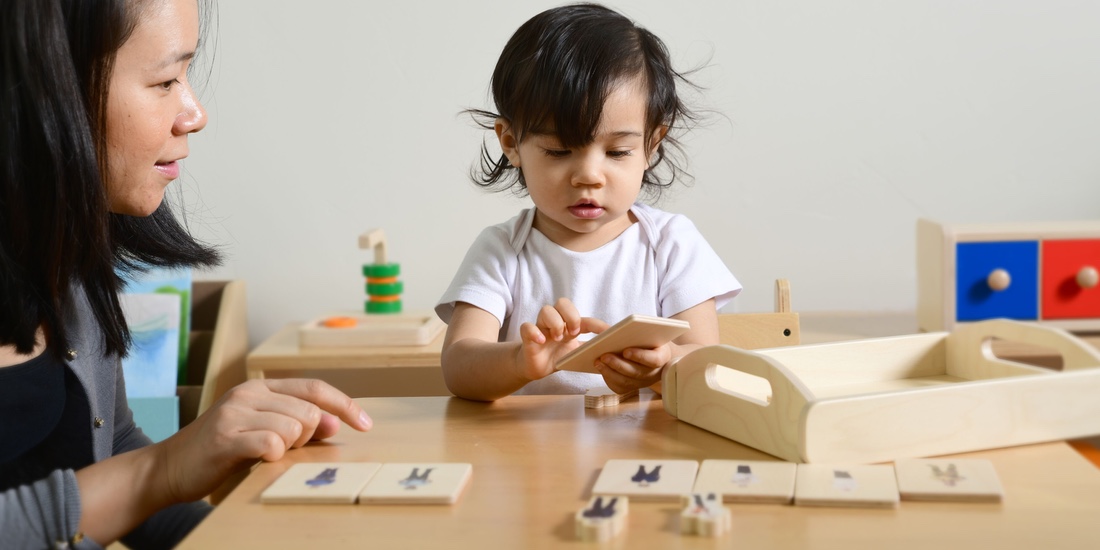Learn the Montessori approach to learning language and how to apply it every day.
Learn
Basic Concepts
Montessori is an educational approach based on the teachings and observations of Dr. Maria Montessori. It is a unique method that values the development of the whole child (e.g., physical, social, emotional and cognitive), and encourages a thoughtfully prepared learning environment to support self-directed learning. A Montessori approach to learning language implies some key concepts:
- The Absorbent Mind is hard at work.
- Young children unconsciously absorb everything in their environment without bias, including intangible aspects like the language that surrounds them.
- Being intentional about a child’s surroundings can have a profound impact on their learning.
- Infants and preschoolers have exponential learning periods that help guide their Absorbent Mind to internalize specific aspects of their environment, such as movement, routine and language.
- For example, around age two, many children experience a growth spurt in language use. This is because, in part, they have spent much of their first two years of life absorbing language around them.
- Young children unconsciously absorb everything in their environment without bias, including intangible aspects like the language that surrounds them.
- Sensorial experiences deepen meaning.
- Exposure to real objects and experiences surrounding language deepens the meaning a child attaches to a particular word and allows them to recognize it in other contexts.
- For example, if a child hears the word ‘pineapple’, they will have a deeper connection to the word if they also taste it, touch it or read about it in a book.
- For this reason, memorization without context does not provide a full understanding of the underlying meaning.
- The Montessori method believes a child must learn what is before thinking about what could be.
- A strong foundation in reality – knowing what is true – is helpful for when a child matures and learns to think and write imaginatively about what could be.
- Real materials teach children to respect materials, beauty and process.
- When a child knows they can independently do real things with real materials, it builds their growing confidence to write and speak.
- When a child is engaged in purposeful life activities, it enhances their interest in learning.
- Exposure to real objects and experiences surrounding language deepens the meaning a child attaches to a particular word and allows them to recognize it in other contexts.
- The brain can encode (write) before it can decode (read).
- Children are ready to write before they are ready to read.
- First offer opportunities for writing; then offer opportunities for reading.
- It is important to give a young child the tools they need to write on their own before they learn to read another person’s writing. This is easier to do because writing is the creation of one’s own thoughts rather than attempting to decipher another person’s thoughts.
- Learning is a unique process.
- Every child develops and learns at their own pace.
- Learning in context and incorporating learning into daily routines is most effective.
Do
Apply a Montessori Approach to Your Daily Routine
| What You Could Do | |
| The Absorbent Mind is hard at work |
|
| Sensorial experiences deepen meaning |
|
| The brain can encode (write) before it can decode (read) |
|
More Montessori resources for language development here.
